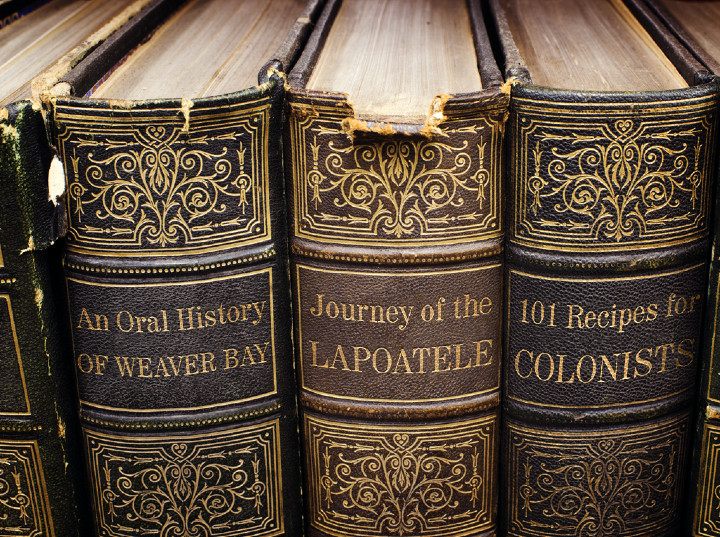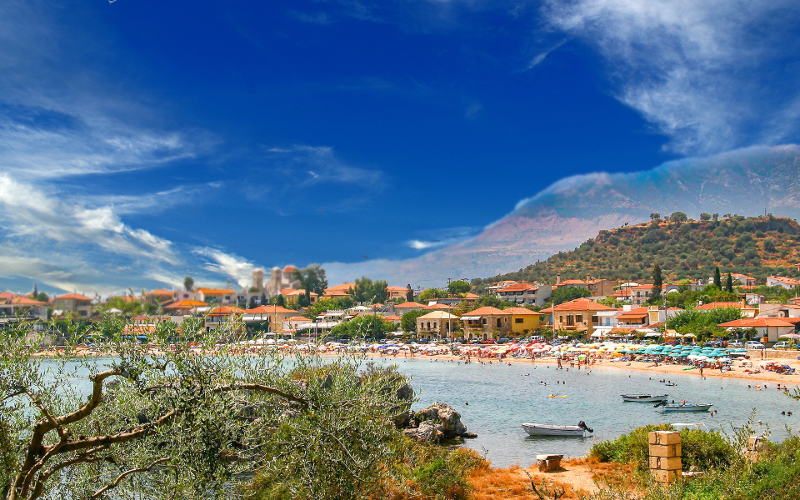Our Shared History

The story of the earliest recorded settlement in what is now considered Weaver Bay dates back to late 15th century Massachusetts at the height of what is now colloquially called the “Witch Purge.” It was at this time, a local girl named Beatrix Sapphire and fifteen of her friends, all of whom were said to work together as “mast straighteners” at a local boatwright’s shop, ran afoul of the local constabulary over, what local records from the time describe as, “a matter of five eggplants.” Fearing they would be hanged or burned alive as heretics to the church, “Trixie” befriended a local merchant captain who happened to have his ship in dock at the time, named Tausa’afia Valea. Captain Valea, a native of the island nation of Funfutia (now present-day Tuvalu), was widely regarded as a great humanitarian and agreed to allow the refugee girls to stow away on his ship, the Lapoatele, when they left for sea that night. Unbeknownst to him, however, he was to be betrayed by the boatwright, Shem Sladie. Fearing retribution to his business for allowing wanted fugitives to escape, Sladie informed local authorities of the captain’s plans to sail that evening, and a high bounty was instantly placed upon Valea and the crew of the Lapoatele.
For six hours the Lapoatele was pursued relentlessly by the superior forces of the West Salem Municipal Port Authority. Finally, her sails nearly shredded, and her rudder having suffered substantial cannon fire damage, Captain Valea (who was securely strapped to her wheel) bravely ordered his crew to 1) steer the ship into an approaching fog bank, 2) silently circle back under the cover of darkness, and 3) engage the enemy broad-side from the East, catching their gunners completely unprepared and with the bright, early morning sun in their eyes. Instead his crew 1) pretty much ignored him as they were busily teaching the ancient sailor's game of “Nana le Puaa” to the female passengers at the time, 2) drifted aimlessly into the fog bank (which as it turned out was actually a freak late Winter hurricane), and 3) got hopelessly lost.
In dire straits, but free from the wretched tyranny of Massachusetts and the greater New England Metropolitan Area, the Lapoatele, her weary crew, and their hapless passengers endured nearly six weeks at sea, drifting at the mercy of the tides, the winds, and the gaseous emissions of various large aquatic mammals. Those aboard lived on nothing but a diet of fish sausages, baked beans, and three boxes of salt-cured maple bacon doughnuts the captain had picked up from Union Square the morning before leaving. Morale was low, the men were subjected to scurvy, severe flatulence, diabetes, and constant beratement by the women to stop and ask for directions.

Finally, as one man climbed the highest mast to the crows nest on what is assumed to be the full intent of casting himself to the deck below to give his crewmates something else to eat for a change, the desperate seaman spotted green shores in the distance. Tears in his eyes, the man called out to the nearly-dead assortment of passengers below, “E mafai e se tasi ona togi mai ni pepa faleuila i luga iinei?” (Translation: “Captain, I can see the shores of Heaven itself dead ahead.”) Captain Valea quickly ordered the ship to make for land, and on the morning of May 15, the ship anchored in the North Cove of Weaver Bay, just across from what is now the large dumpster behind “Waylon's Worms and Wine Emporium” over on West Plantago street.

Counting themselves fortunate to find such a beautiful, untouched, picturesque stretch of land in the midst of their struggle for survival, the intrepid fugitives believed themselves to have been saved by divine province. Upon reaching shore, they quickly burned the ship, then set about chopping down the local trees to build shelters. Parties set out to hunt game and tame the land. Fields were plowed up to grow crops to feed the children that would no doubt be born that winter. Preparations were made for founding of the first Euro-Polynesian colony on the picturesque shores of the New World.
Of course, they completely failed to realize that they were, in fact, trespassing on the sacred grounds of the local, indigenous tribe, who, after three weeks of politely and patiently attempting to explain the situation, finally gave up, killed, and ate all of the interloping colonists -- mistaking their annoying habit of continually repeating themselves in a progressively slower and louder voice to be some kind of psychotic disorder.